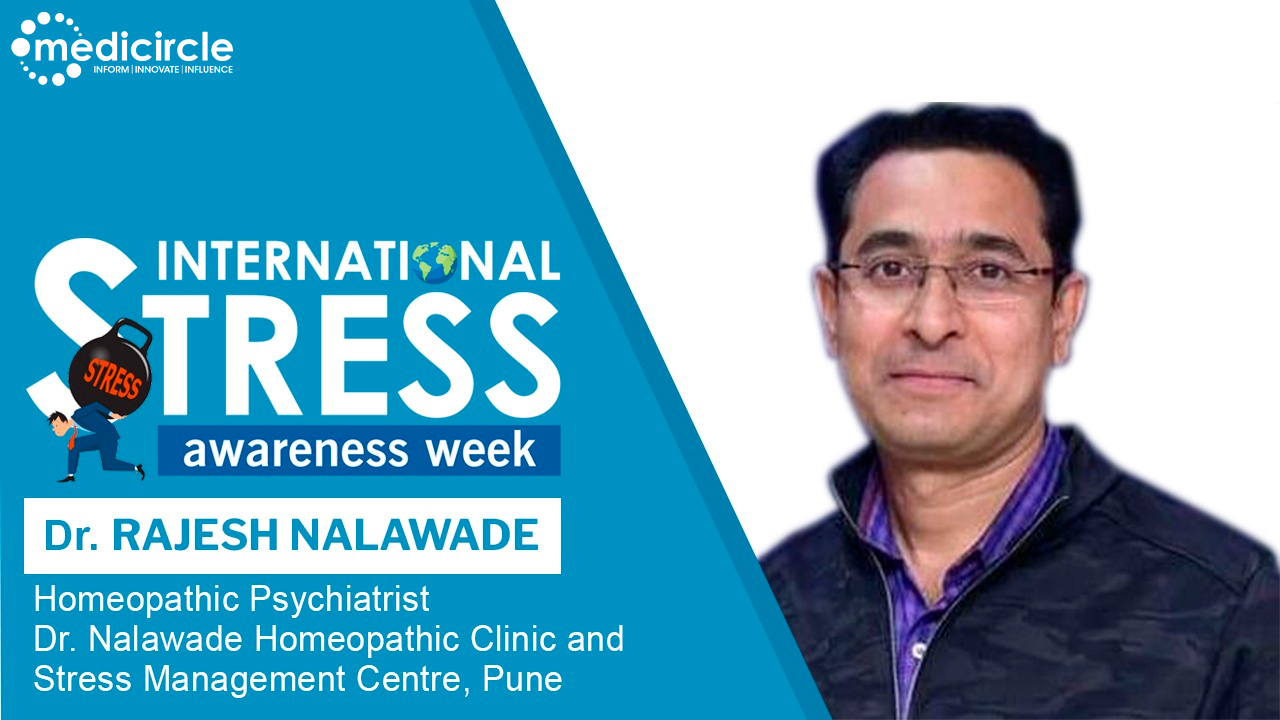The feeling of being overwhelmed or unable to cope with mental and emotional pressure is stress. Stress is our body’s response to pressure. Many different situations or life events can cause stress. Sometimes, this stress response can be useful: it can help us push through fear or pain. However, too much stress can cause negative effects. Long term, this can affect our physical and mental health.
As per the result of a large-scale survey conducted across India in 2019, young adults between the age of 20 and 29 years of both genders were the most stressed in the country. The major cause of high-level stress among young people are peer pressure, pressure to succeed in academics or work and irregular routines. 50% of Indian professionals have reported that an uncertain future is their topmost source of stress as was revealed in a recently concluded survey by The7thFold, a boutique HR and Wellbeing firm.
Every year, the world celebrates International Stress Awareness Week from 1st to 5th November. The day encourages people to sit back, unwind and embrace peace. Awareness about this become even more significant this year due to the tough times people across the world have gone through in the COVID-19 outbreak. We at Medicircle are conducting the International Stress Awareness Week Series wherein we will be featuring experts in this field to understand and create more awareness about the effects of stress.
Dr Rajesh Nalawade is a Homeopathic Psychiatrist at Dr Nalawade Homeopathic Clinic and Stress Management Centre, Pune. He has a high proficiency in interacting with patients and understanding their physical, mental, psychological and behavioural details for appropriate analysis to deduce the correct Homoeopathic medicines as well as counselling. He has published a research paper “Stress Relieving Techniques For Organizational Stressors” in the international journal IJRCM (International Journal Of Research In Commerce & Management) in March 2016.
Common Causes of Stress
Dr Nalawade begins, "In today's challenging world, a person will go through stress when the expectations exceed the individual's resource capacity. An individual has many resources – physical and emotional strength, coping mechanisms, financial position, ability to relax and social connectivity. If personal, familial, professional or social demands keep piling up on the individual then such resources get utilised."
"Other stress-causing situations are when the individual has to adjust to the changing situation in job or life. Major life events, like losing a loved one or a job, cause stress. Then expectations, from ourselves and from what others expect from us, cause stress."
"Common stressors nowadays are job pressure, interpersonal relationships, financial expectations, emotional expectations, facing loss, facing challenges and many more."
When to seek professional help?
Dr Nalawade says, "Stress is nothing new. For ages, we have been facing stress. Every individual has a physical and psychological apparatus to deal with stress called stress reaction. We term it as a 'fight or flight response. Our body undergoes certain modifications to deal with any stressful situation. Once the stress is over our body goes back to its original way."
"For instance, when you are stressed your body will start pumping your heart faster. You might feel uncomfortable in that situation. But once the stressful situation is over you go back to being normal."
"But when you are undergoing stress for a long time your body and mind will have to deal with it longer. This will take a toll on your system. For instance, your heart will keep pushing blood at high pressure, making it a high BP problem. Or maybe you will have an indigestion problem."
"This is happening because your physical and mental apparatus is not able to handle stress. At such a time when you can't deal with stress yourself, you need to seek professional help."
Professional Help for Stress
Dr Nalawade explains, "First understanding the stress within an individual is needed. This is where consultation comes in. This is where in-depth understanding would be gathered. Then there is counselling. There is also medical management like psychotherapy or therapeutic management. Then there is stress-relieving techniques, mindfulness techniques and relaxation techniques."
Lifestyle Habits to deal with Stress
Dr Nalawade mentions, "We cannot change the demands that are out on us. The only thing we can change is our resources and capacity. So any lifestyle habit that enhances your resources will help with stress. So have a balanced diet. Adequate and timely sleep. Go for exercise along with yoga and meditation."
"For emotional strength, relax on a daily basis. Don't pent up your emotions. Talk to a friend or a close one. Engage in activities that help you laugh and relax. Social and spiritual activities also help. Keep clear goals and aspirations in life. Set priorities and be positive. Accept failures and feedback positively. Make daily checklists and manage time efficiently. Learn respiratory exercises."
(Edited by Priyal Shah)

 Stress is unavoidable. We cannot change the demands that are out on us. The only thing we can change is our resources and capacity. Learn the things that will help you avoid and cope with stress.
Stress is unavoidable. We cannot change the demands that are out on us. The only thing we can change is our resources and capacity. Learn the things that will help you avoid and cope with stress.



















.jpeg)










